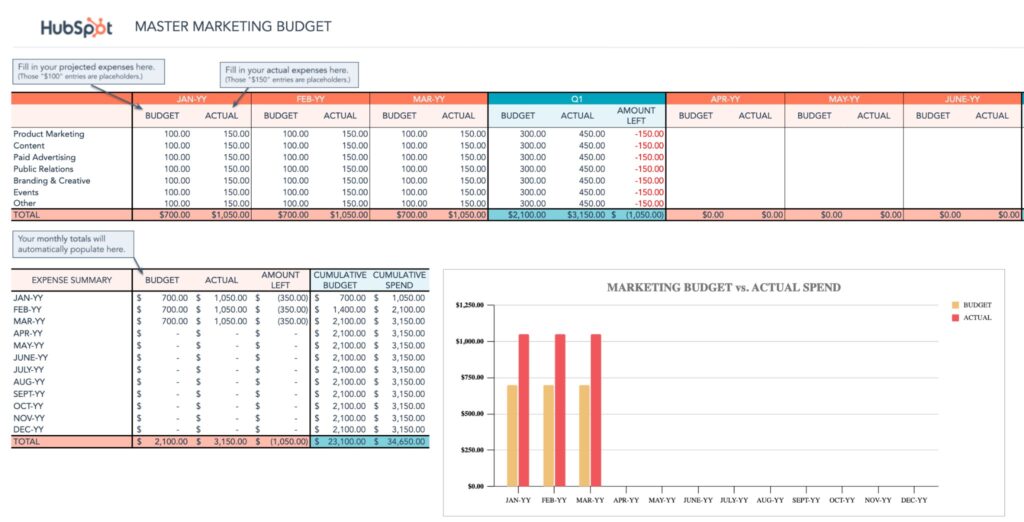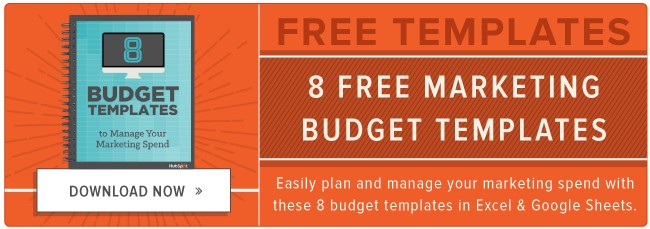Keeping track of expenses as a business owner can be taxing. You have to document every detail to make sure you stay within your spending limits while promoting your products or services, delivering on promises, and developing new offerings.
A business budget worksheet can help you stay organized.
Having a template to work from will cut down on the time it takes to write down the details of a budget, help you prioritize projects and allocate resources to get them done, and reveal trends of the money you spend versus the results achieved.
Depending on the complexity of your company, you may need to oversee a number of individual budgets while managing the overall spend. The business budget worksheets below range from specific templates — from product marketing to website redesign — to comprehensive ones that cover all aspects of your marketing plan.
Let's dive in so you can take control of your budget like never before.
How to Write a Business Budget
1. Use Budget Templates
Creating a business budget from scratch can be overwhelming—you need to capture the details of each month's projected budget, actual spend, and the cumulative total of each.
If you've never written a business budget or are looking for a specific marketing worksheet, you can start with HubSpot's Marketing Budget Templates. This download includes eight well-designed and detailed templates to easily manage your finances, with options for Microsoft Excel or Google Sheets. A quick overview explains how to use each template so you can easily start filling in your own information.
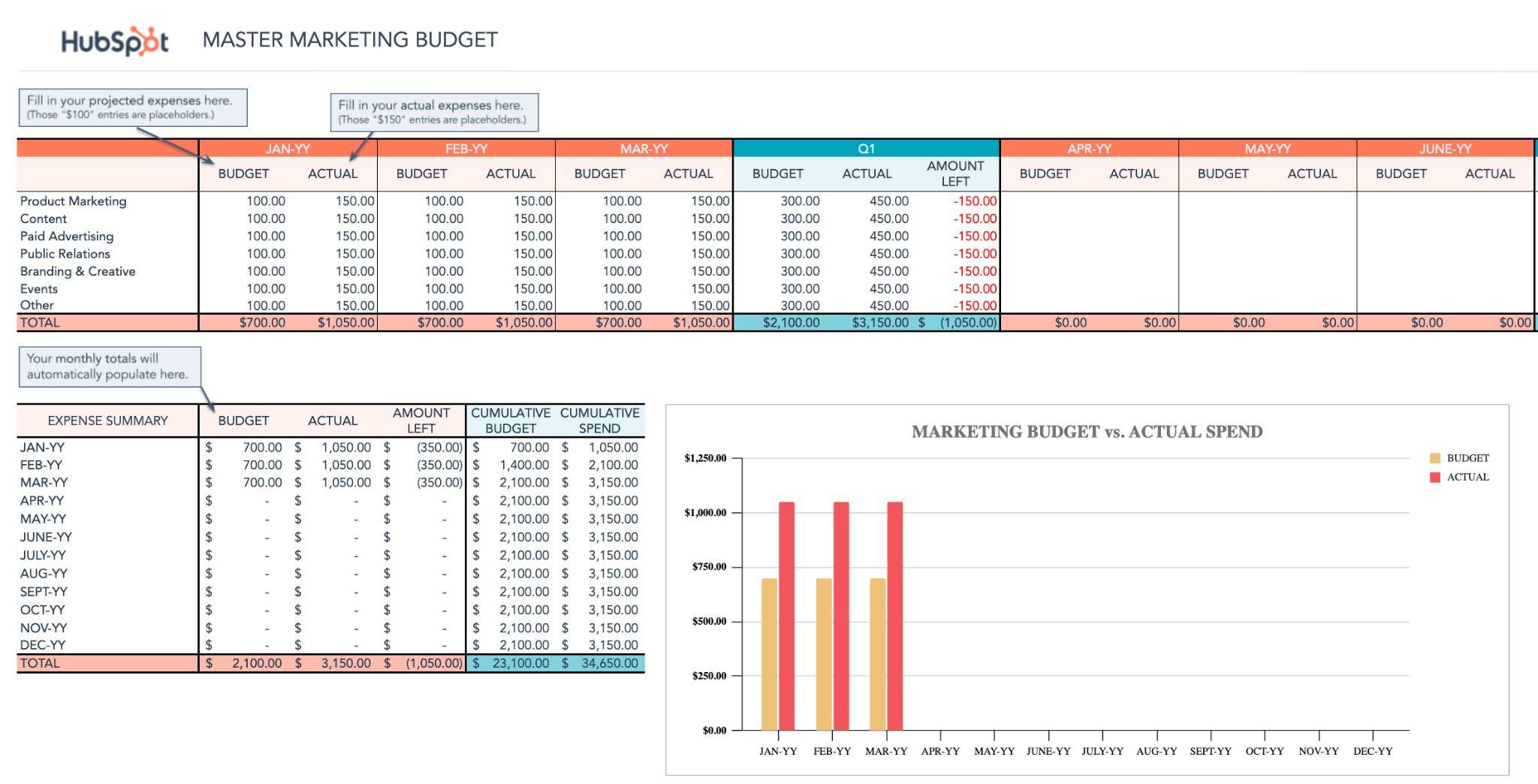
2. Set Your Strategy and Goals
To make the most of your budget, you have to know what goals you want to achieve and the strategy to get there. If you're working to bring in more sales (a goal) and plan to improve your website to attract leads (the strategy), you'll have to put funds towards the redesign project.
Check out these strategic planning models that can help map out your long-term goals if your business is just getting off the ground. That way, your budget will reflect the financial resources needed to accomplish your objectives.
3. Gather the Numbers
Every company has different needs, so no one budget will be exactly the same. A branding and creative budget, for example, will have vastly different line items than a website redesign budget.
No matter what budget you're putting together, you'll need all of the relevant expenses for a comprehensive overview. Here are the basic numbers you may want to include:
- Revenue projections: Consider your historical financial performance and projected growth income.
- Fixed-cost projections: The costs that don't change (i.e. employee compensation, office rent, business software, insurance, and utilities).
- Variable-cost projections: The costs that may change month-to-month (i.e. overtime compensation, supply costs, or software that varies by usage).
- Annual project expenses: The cumulative costs of implementing all of your company goals for the year.
- Individual project expenses: The costs associated with each project, which should be tracked in individual budget worksheets.
- Target profit margin: A ratio that reveals how much money a company makes. Knowing your bottom line — and including it in your budget — is a helpful reminder of what you hope to achieve within the year and a good benchmark when analyzing your monthly financial trends.
Depending on the budget, you can also include cash, inventory, accounts receivable, net fixed assets, or long-term debt.
How to Manage a Business Budget
No budget is an island. All companies are impacted by poorly-managed budgets, especially a small business just starting out.
When your budget is just one piece of the puzzle, you'll likely need to get it approved by a manager or executive team before spending any money. If you're running a business on your own or with a small team, it's smart to find a trusted colleague or financial expert to look over your numbers. They may be able to point out areas to cut costs, reallocate funds, or create larger profit margins.
Want to make sure you're on track? Figure out how much you should put aside for a marketing budget that meets your goals.
Once your budget is in place, checking in on it once a year isn't enough — you need to review it monthly (at minimum) to make sure your expenses aren't out of control. Once you set your annual budget, revisit it at the beginning and end of every month. If you like to be in the know, you can even set a time to review it mid-month to double-check that everything is on track.
When a new project pops up, simply add it to your existing business budget worksheet and make adjustments to the overall expenses. The same thing applies if you wind up dropping a project. Company priorities change constantly, and your budget needs to adapt along with the shifts.
Business Budget Worksheets for Small Businesses
You poured through past financial records, made future projections, mapped out your upcoming projects, and have all of the information you need to build a well-rounded budget. Now it's time to choose the best business budget worksheet for your goals. Luckily, all of these options make it simple to stay on top of your finances.
HubSpot Marketing Budget Templates
If you want a worksheet for each marketing niche, HubSpot has you covered. One download gives you access to eight budget templates: a master marketing sheet, product marketing, content, paid advertising, public relations, branding and creative, website redesign, and events.
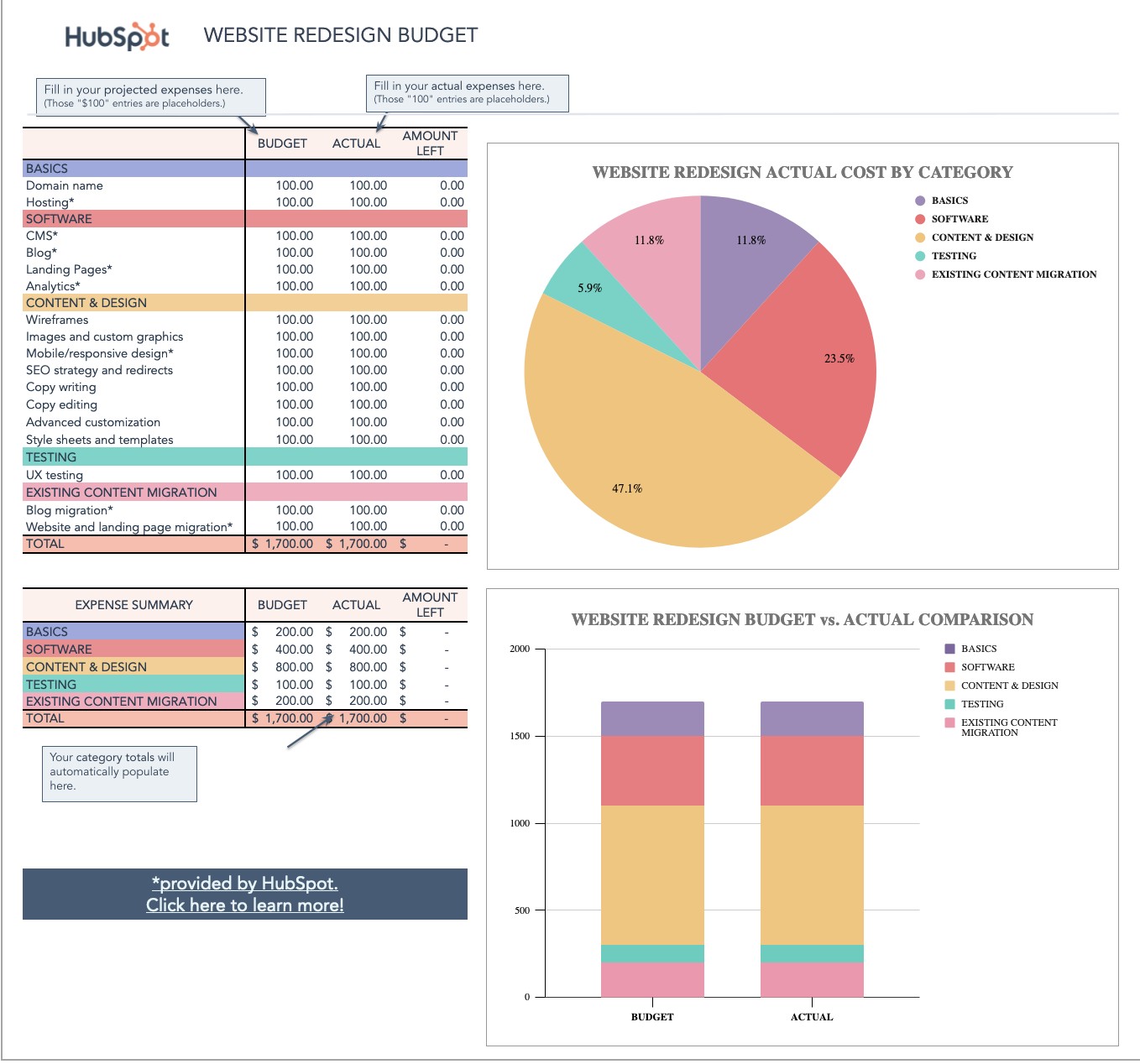
Small Business Budget Templates
Simplicity is the theme of these business budget worksheets by Smartsheet. Each Excel template is free to download, with options for multiple products, business expenses, startups, and more.
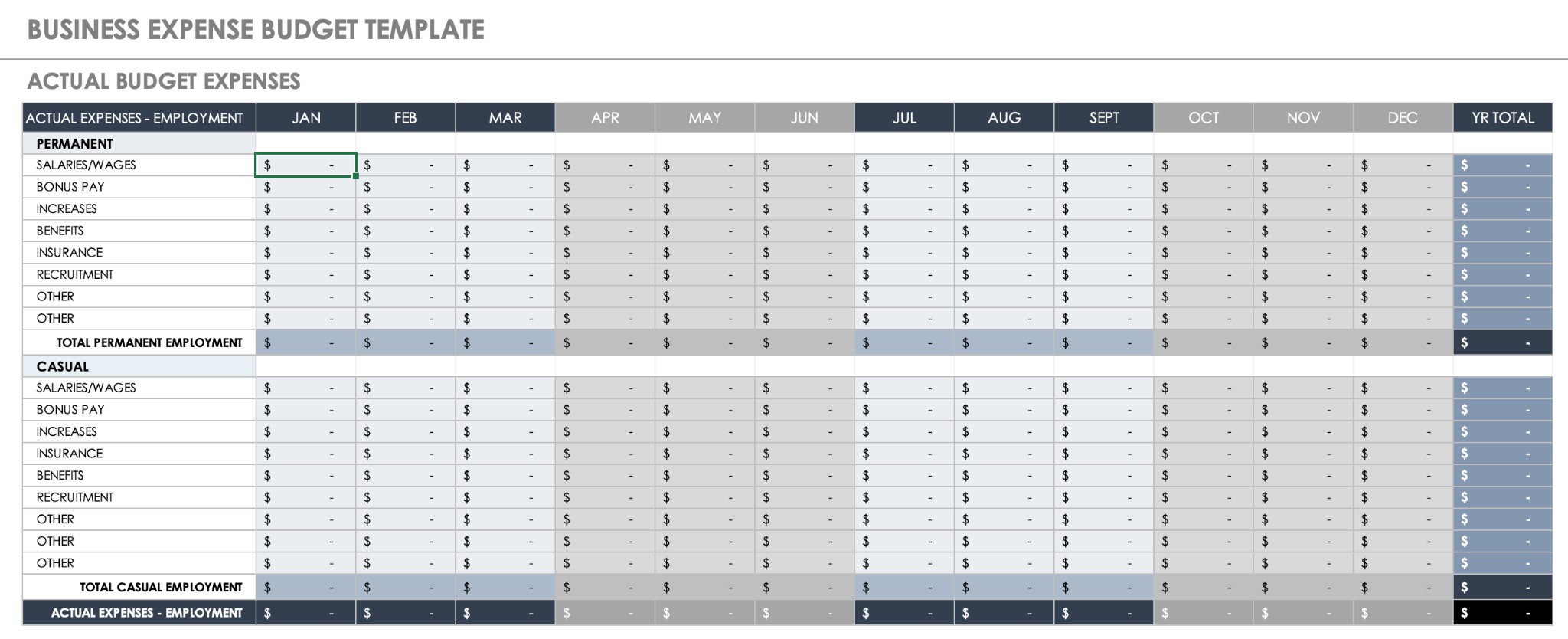
Business Expense Template
Need a polished business expense budget? Microsoft Office has you covered with this well-designed Excel template that outlines costs for employees, marketing, office space, travel, and training. Just fill in the blanks and send it for approval.
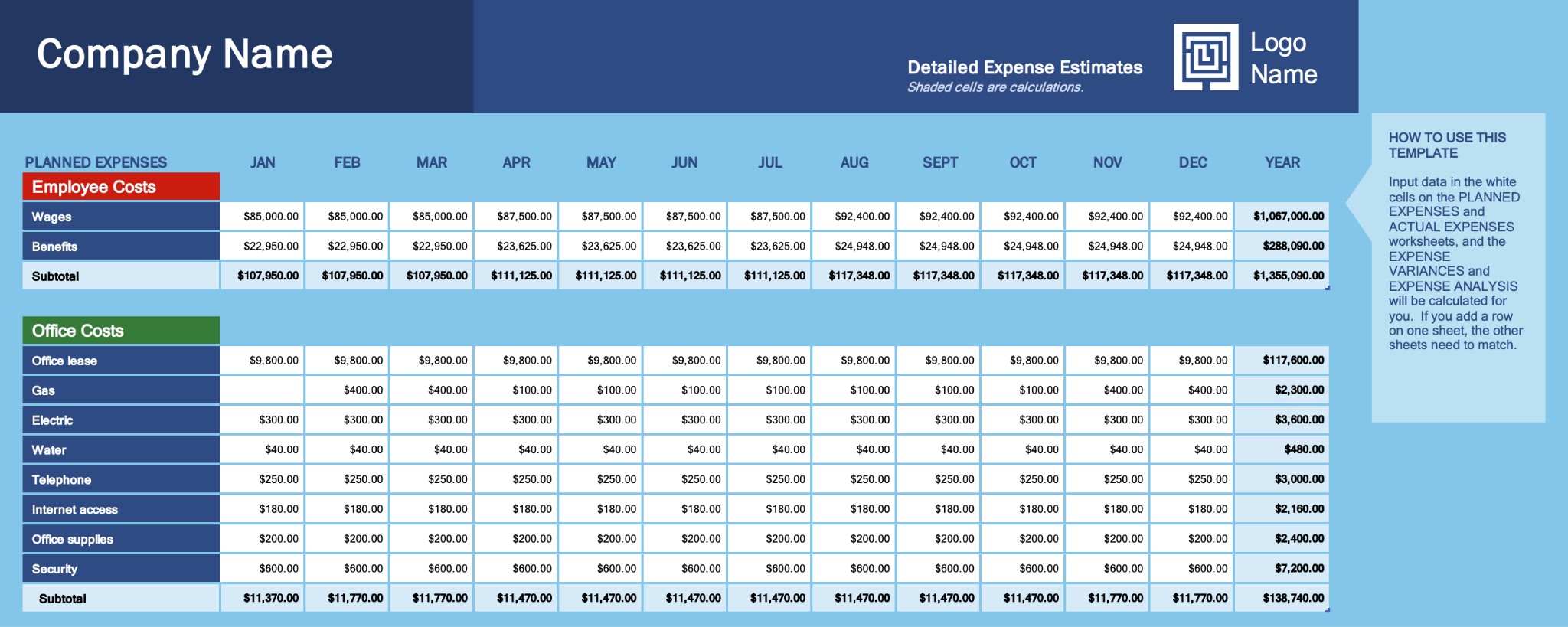
Year-Over-Year Budget Template
For a simple look at how your incomes and expenses change from year to year, this Excel template from Quickbooks is all you need.
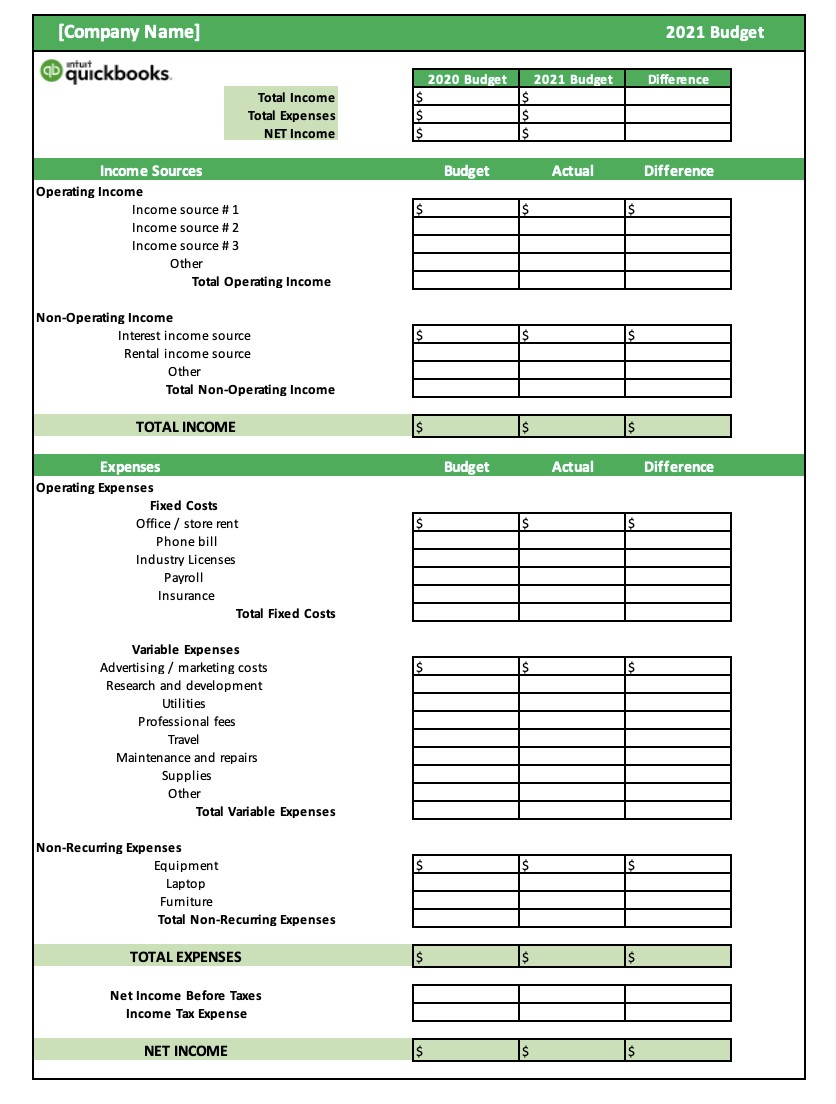
Freelance Budget Templates
Working for yourself often means combining personal and business expenses. That's why these Excel templates from Business Load include income projections alongside personal costs. You can even budget what you'll contribute to taxes, your 401k, and emergency fund all in the same sheet—because you likely have more than enough to manage.
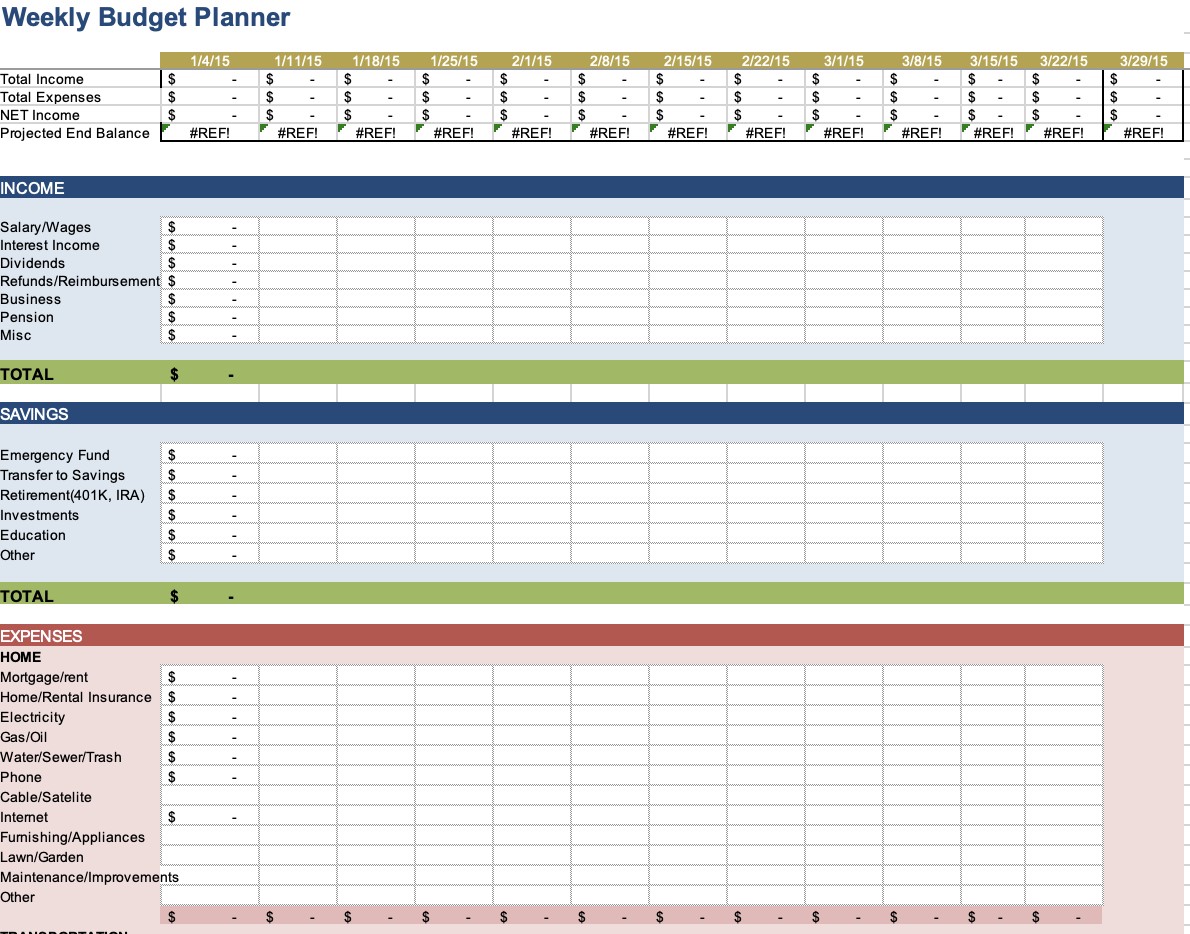
Sample Business Budget Worksheet
Personally, I'd rather endure the monotony of writing lines than spend all day organizing numbers in a blank spreadsheet. But having an example to work from makes it easier to make sure everything is on track. If you share that mindset, here's a filled-in sample of a business budget worksheet to get you started.
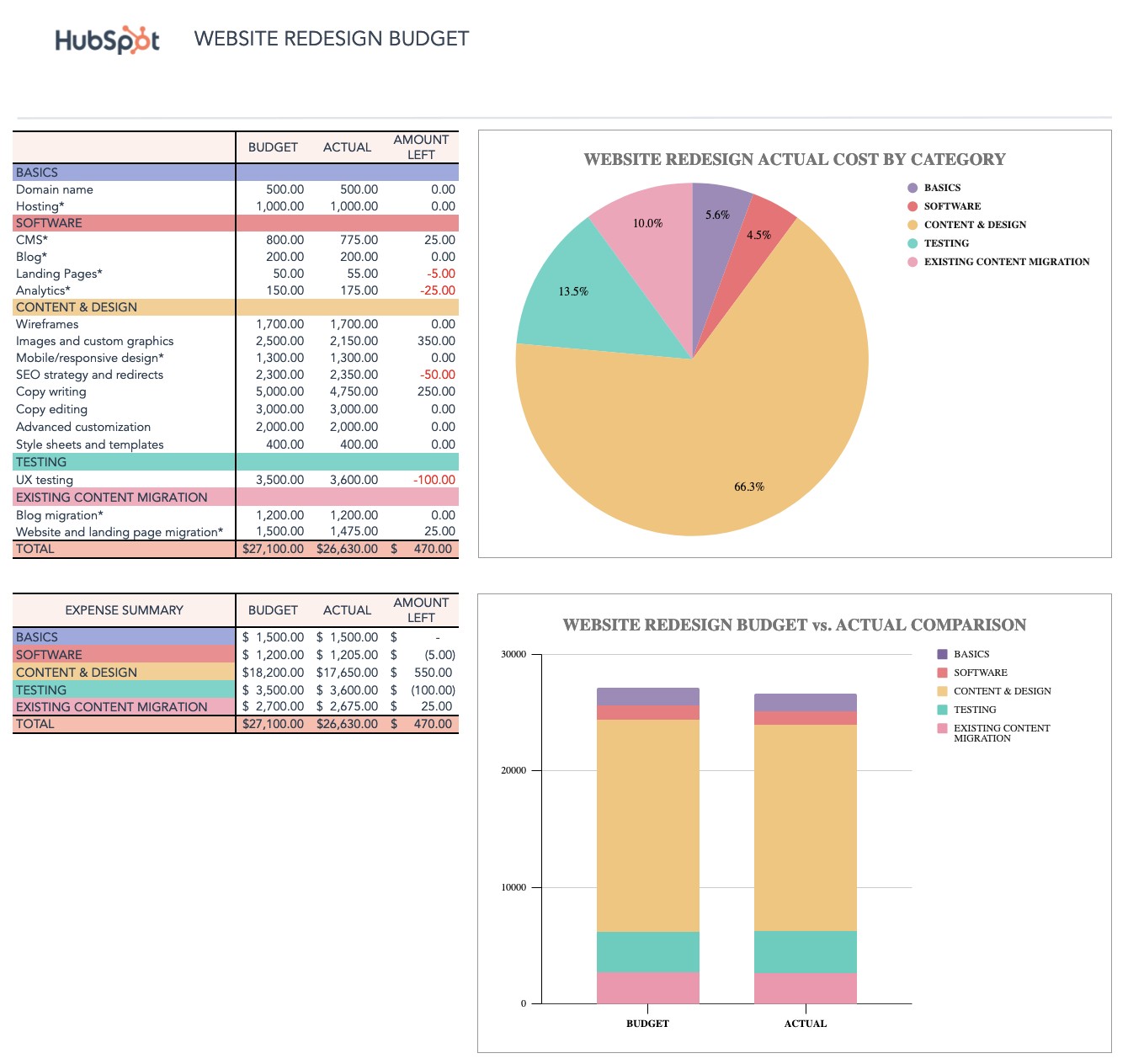
The sample shows the budget needed for a website redesign project, with each expense categorized to keep it organized and easy to read. You can see where the budget went over (UX testing) and where savings happened (CMS software).
Setting up your own business budget using these templates is so quick and easy, you can have your numbers in order in no time. The sooner you begin, the better off your budget (and business) will be in the months and years to come.

